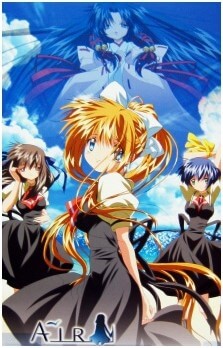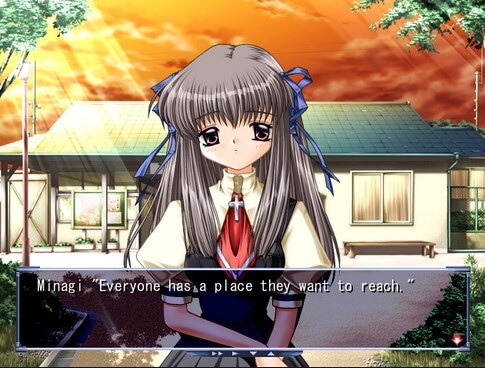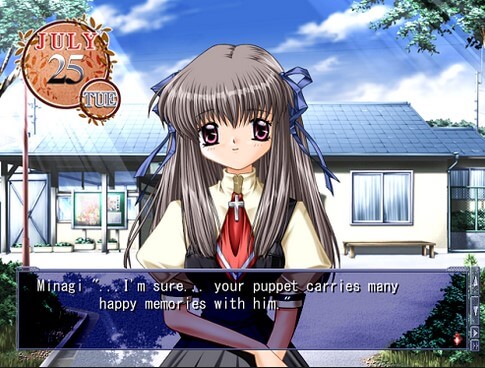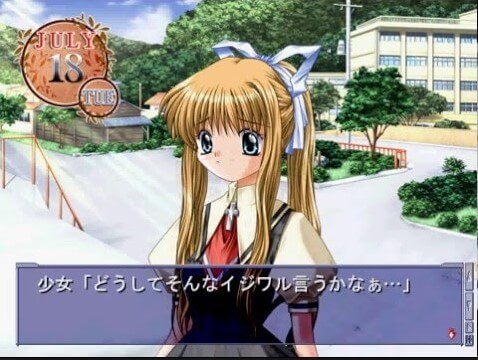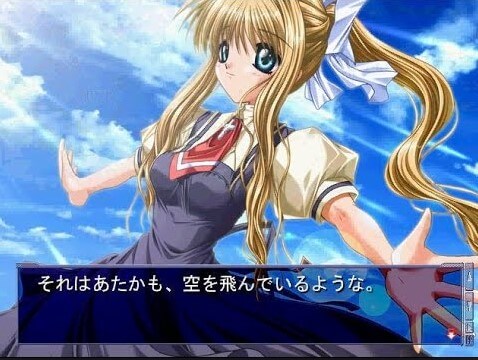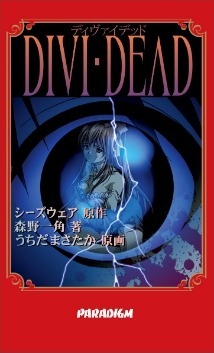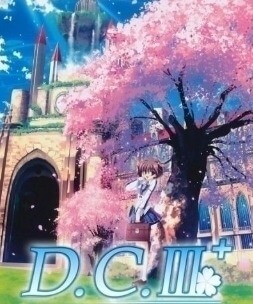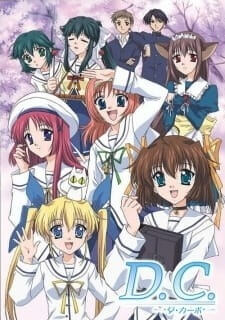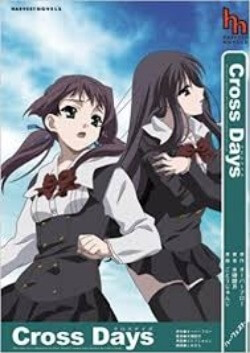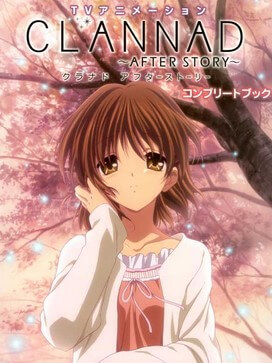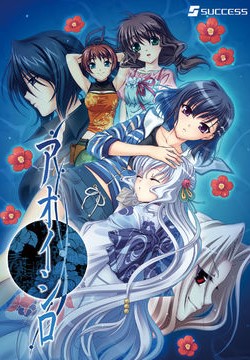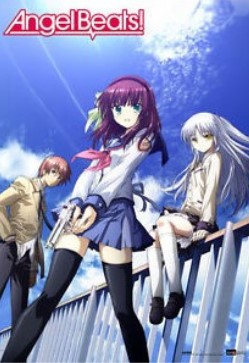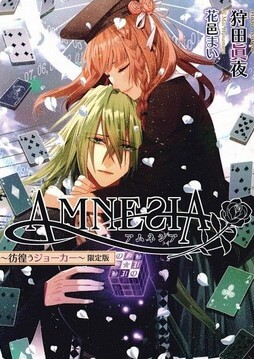Air is a Japanese adult visual novel developed by Key released on September 8, 2000, for Windows PCs. Key later released versions of Air without the erotic content, and the game was ported to the Dreamcast, PlayStation 2, PlayStation Portable and PlayStation Vita. The story follows the life of Yukito Kunisaki, a traveling showman searching for the "girl in the sky". He arrives in a quiet, seaside town where he meets three girls, one of whom is the key to the end of his journey.
The gameplay in Air follows a branching plot line which offers pre-determined scenarios with courses of interaction, and focuses on the appeal of the three female main characters by the player character. The game is divided into three segments—Dream, Summer, and Air—which serve as different phases in the overall story. The title of the game reflects the prominent themes of the air, skies, and use of wings throughout gameplay. The game ranked as the best-selling PC game sold in Japan for the time of its release, and charted in the national top 50 several more times afterwards. Air has sold over 300,000 units across several platforms.
Following the game's release, Air made several transitions into other media. A manga by Yukimaru Katsura was serialized in Kadokawa Shoten's Comptiq, and later published into two volumes. Comic anthologies and art books were also published, as were audio dramas and several albums of music. Kyoto Animation produced a 13-episode anime television series and a two-episode anime mini-series in 2005, and Toei Animation produced an anime film in 2005. The anime adaptations are licensed by Funimation who released them in North America.
Gameplay
Air is a romance visual novel in which the player assumes the role of three characters. Much of its gameplay is spent on reading the story's narrative and dialogue. Air follows a branching plot line with multiple endings, and depending on the decisions that the player makes during the game, the plot will progress in a specific direction. With the consumer ports, if an undesired choice was selected, there would be an option to rewind the story to correct the mistake. However, if the player reaches a bad end to a storyline, the player does not have this option and must reload the game at the last saved point.
There are five main plot lines that the player will have the chance to experience, three which are initially available and two more which can later become available. Throughout gameplay, the player is given multiple options to choose from, and text progression pauses at these points until a choice is made. To view all plot lines in their entirety, the player will have to replay the game multiple times and choose different choices to further the plot to an alternate direction.
When first playing the game, the player assumes the role of Yukito Kunisaki and the scenarios for the three heroines are available in what is called the Dream story arc. After the plot lines for these three heroines have been completed, an additional scenario called Summer is made available where the player assumes the role of Ryūya. Summer is a linear novel arc in which no choices are presented to the player. Upon the completion of the Summer route, another scenario called Air is made available, which serves as the true ending to the story. In Air, the player assumes the role of a crow named Sora. In the adult versions of the game, there are scenes with sexual CGs depicting Yukito and a given heroine having sex. Later, Key released versions of Air without the erotic content.
Reception and sales
According to a national ranking of how well bishōjo games sold nationally in Japan, the original Air PC release premiered at number one in the rankings. The game ranked twice at 42 in November and December 2000, at 20 in January 2001, and twice more at 42 through February 2001. The original release appeared on the charts twice more: the first in late September to early October 2001 at 26, and again in the last two weeks of May 2002, ranking in at 43. The regular edition of the Air PC release premiered at number 13, ranked in at number 41 in the following ranking, and 42 in the ranking after that. The PC all ages version premiered at number seven in the rankings and had a final ranking at 30 in the next ranking. The Air Standard Edition premiered at number one in the rankings. The Air Standard Edition ranked in twice more, at 34 and at 28 in the next two rankings. Air was the highest selling game of 2000 selling 102,080 units, which was about 25,000 more units than the second highest game, Inagawa de Ikō!. The Dreamcast version sold 42,445 units in its first week, and was the fourth highest selling console game in Japan that week. The video game magazine Famitsu scored this version a 30 out of 40, and it ultimately sold 50,406 units to rank as the 53rd highest selling Japanese Dreamcast game ever, as of 2007. NTT Publishing reported that over 300,000 units of Air have been sold.
"Air took the bishōjo gaming world by storm," as states a review of the Dreamcast game by MobyGames. Air was described as a game that stands out, much like Key's first title Kanon, due to an intricate plot that keeps the player interested, and has a good replay value as well. In an interview of Jun Maeda and Yūichi Suzumoto, they were both surprised to find out that the Japanese public (in March 2001) felt Air to be a soothing game, but Maeda and Suzumoto made it clear that this impression is completely at odds with their impression of the game, and they remark that there was not one person who worked on Air who thought that. Characters from Air have appeared in dōjin works not directly based on the Air series. Games such as Eternal Fighter Zero -Blue Sky Edition- by Twilight Frontier where most of the playable characters either came from Air or from the earlier Key games Kanon or One. In the October 2007 issue of Dengeki G's Magazine, poll results for the 50 best bishōjo games were released. Out of 249 titles, Air ranked eighth with 43 votes.
